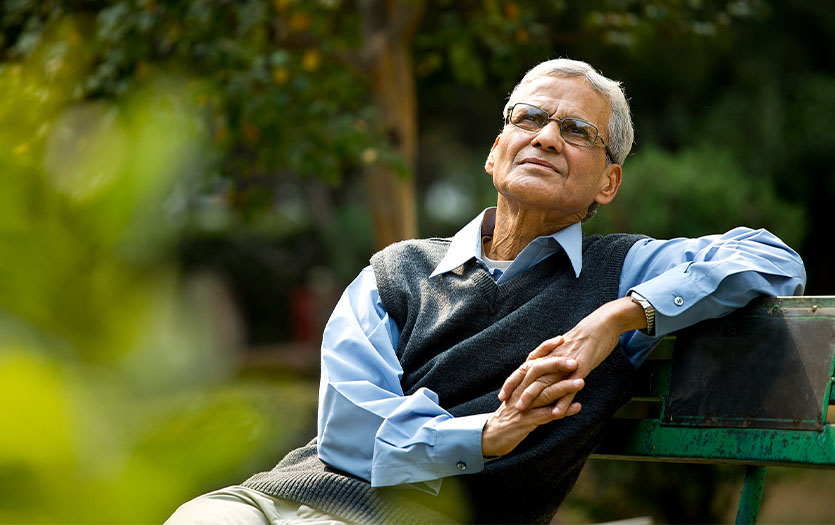
This post was written by Kristen Varian, PsyD, post-doctoral psychologist, Park Center, Parkview Behavioral Health Institute.
There are all kinds of national and international days, weeks and months of recognition. There’s everything from simple, fun celebrations like National Ice Cream Day to observances that recognize and bring awareness to important diversity issues, such as International Women’s Day, Black History Month and Pride Month. Recently, on August 1, 2021, there was a day of celebration and awareness you may not have heard of, International Childfree Day. This day of recognition helps bring awareness to the intentional choice not to have children and support those who willingly choose to live a child-free life.
Understanding the terminology
When speaking about people who do not have children, there are a few labels that are important to recognize. The term “childless” refers to people who want children but do not have them. In contrast, words like intentionally childless, voluntarily childless and childfree refer to individuals who have chosen not to have children. Childfree, or childfree by choice, is the term I preferred when completing my doctoral dissertation on childfree women and voluntary sterilization. Framing the word emphasizes the intentional choice and recognizes that childfree people do not feel that they are missing out on anything. Therefore, there is nothing ‘less’ about it.
Where it began
Since the widespread availability and use of the birth control pill in the 1960s, women have had more control over their reproductive choices, including not having children at all. Between 2006-2010, an estimated 6.0% of women, ages 15-44, were childfree. [7] This figure increased to 7.4% between 2011-2015 and then to 7.6% from 2015-2017, with expectations to continue this steady rise in the future. [8] With that said, similar statistics have not been released in the National Survey of Family Growth about men because it’s not looked at as abnormal if men choose not to have children.
Addressing the stereotypes
Often painted in a negative light, there are many stereotypes about voluntarily childless people. These labels can portray those who choose to live childfree as selfish, unnatural, abnormal [3], or unfulfilled and unhappy [12]. However, none of these assumptions are necessarily true. Moreover, studies have found that childfree women simply have different values and attitudes than mothers or women who want to have children [2, 4]. Childfree couples are also perceived to have lower marital satisfaction than parents [6], which is not automatically true, as parents in childrearing years have significantly lower marital satisfaction than nonparents [11]. Furthermore, just because childfree individuals do not have children of their own does not mean they dislike children altogether. Many individuals find other ways to invest in the next generation as teachers, godparents, aunts, uncles, childcare professionals and even psychologists.
Studies have found many reasons a person may choose not to have children. Some include a general desire for freedom, wanting to focus on career goals, concerns about the environment and overpopulation, having personality traits that are incompatible with parenthood or generally feeling that they would not be a good parent [9, 5]. Along with this, many childfree people have thought for a long time about the choice and recognize how hard being a caregiver is, as parenthood is not easy work. It is a lifetime commitment to raising a child into a responsible adult, which is why it’s okay to choose a different life if that’s not something you want to do.
Final thoughts
Ultimately, living a child-free life boils down to personal choice. With advances in birth control methods and proper access to those methods, we all have the option not to have children. Also, with general societal progress, there are gradually fewer pressures to have children than there were in the past. For individuals who have chosen or will choose parenthood, thank you for your sacrifice. For those who want children but cannot have them (or in the way you imagined), I am so sorry for your challenging circumstance. Finally, for those who have actively chosen not to have children, I hope you had a great International Childfree Day and continue to celebrate your life and choice.
References
[1] Bartlett, J. (1995). Will you be mother? Women who choose to say no. New York: New York University Press.
[2] DeVellis, B. M., Wallston, B. S., & Acker, D. (1984). Childfree by choice: Attitudes and adjustment of sterilized women. Population & Environment: Behavioral & Social Issues, (7)3, 152-162.
[3] Doyle, J., Pooley, J. A., & Breen, L. (2013). A phenomenological exploration of the childfree choice in a sample of Australian women. Journal of Health Psychology, 18(3), 397-407. doi:10.1177/1359105312444647
[4] Kaltreider, N. B. & Margolis, A. G. (1977). Childless by choice: A clinical study. American Journal of Psychiatry, 134(2), 179-182.
[5] Keiser, R., Dykstra, P. A., & Jansen, M. D. (2008). Pathways into childlessness: Evidence of gendered life course dynamics. Journal of Biosocial Science, 40(6), 863-878. doi:10.1017/S0021932007002660
[6] LaMastro, V. (2001). Childless by choice attributions and attitudes concerning family size. Social Behavior and Personality: An International Journal, 29(3), 231-243. doi:10.2224/sbp.2001.29.3.231
[7] Martinez, G., Chandra, A., Daniels, K., & National Center for Health Statistics (U.S.). (2012). Fertility of men and women aged 15-44 years in the United States: National survey of family growth, 2006-2010. National Health Statistics Reports, 51, 1-28.
[8] National Survey of Family Growth. 2019. Center for Disease Control and Prevention. National Center for Health Statistics. National Survey of Family Growth, Key Statistics, 2015-2017. Retrieved from: NSFG - Listing C - Key Statistics from the National Survey of Family Growth (cdc.gov)
[9] Park, K. (2005). Choosing childlessness: Weber's typology of action and motives of the voluntarily childless. Sociological Inquiry, 75(3), 372-402. doi:10.1111/j.1475-682X.2005.00127.x
[10] Peterson, H. (2015). Fifty shades of freedom. Voluntary childlessness as women’s ultimate liberation. Women’s Studies International Forum, 53, 182-191.
[11] Twenge, J. M., Campbell, W. K., & Foster, C. A. (2003). Parenthood and marital satisfaction: A meta-analytic review. Journal of Marriage and Family, 65(3), 574-583. doi:10.1111/j.1741-3737.2003.00574.x
[12] Veevers, J. E. (1973). Voluntarily childless wives: An exploratory study. Sociology and Social Research, 57(3), 356-366.



